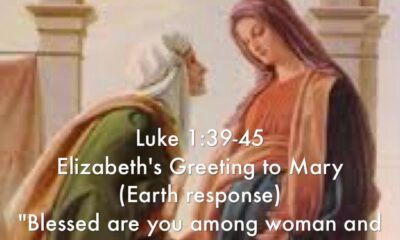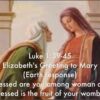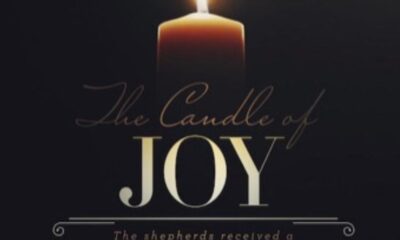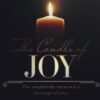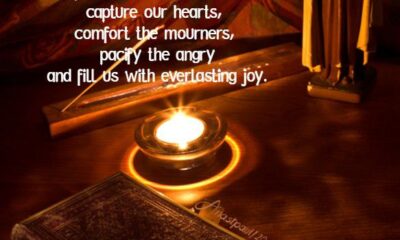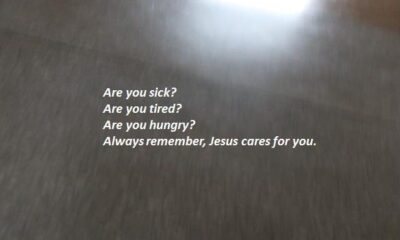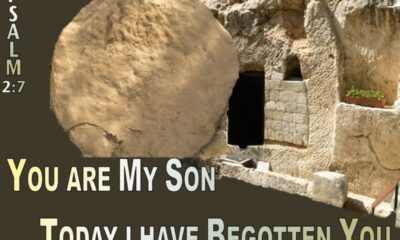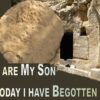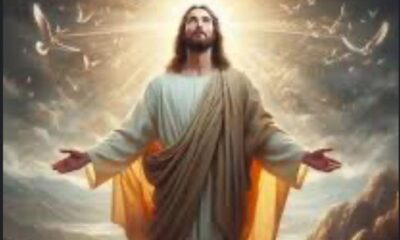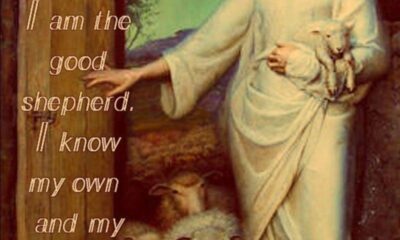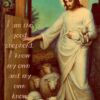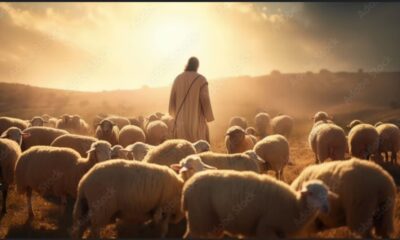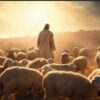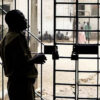Second Sunday Of Advent
Second Sunday of Advent (Year C)
Bar 5.1-9; Ps 125; Phil 1.3-6, 8-11; Lk 3.1-6
1. The readings at Mass today contain a certain amount of travelling backwards and forwards in time. It is as if the borders between past, present and future have become blurred. John the Baptist, looking to the future coming of the Messiah quotes words from the prophet Isaiah first spoken many centuries before: “A voice cries in the wilderness; Prepare a way for the Lord…”. Those words, so fresh and exciting when first given in prophecy by Isaiah many centuries before Christ had lost some of their immediacy by the year 30 AD. In the wilderness, John gave Isaiah’s words fresh urgency as he proclaimed the Messiah to be at hand. What the prophet joyfully expected is now coming to fulfilment centuries later.
2. The prophet Baruch, less familiar to us than Isaiah, also travels in time in his prophecy. Catholic scholars agree that his words were spoken and written down some time after the Jews had returned to Israel from their exile in Babylon. Baruch wanted to recall the Israelites to true faith and devotion. By the waters of Babylon they had longed for their own land, reformed their lives, renewed their sense of dependence on God and devotion to him, and prayed for restoration. Now, back in their homeland, they are lapsing back to their old ways of compromised faith, lack of devotion, lukewarm prayer and half-hearted justice. So Baruch uses a favourite technique of Hebrew writers. He looks to the past to see signs of God’s faithfulness. God promised to restore Israel to glory. After the return from exile he did what he had promised. So Baruch makes his words sound as if they were actually being spoken before the disaster of the deportation to Babylon: “Arise, Jerusalem, stand on the heights and turn your eyes to the east: see your sons reassemble from west to east .” He invites the Jews to remember how hopeful they felt in their exile when looking forward to returning home, as a way of waking them up to how far they have slipped back to their faithless ways. The psalm today goes even further in reliving the joy of the journey home: “When the Lord delivered Zion from bondage, it seemed like a dream. Then was our mouth filled with laughter, on our lips there were songs.”
3. What happens if the same technique is applied to us individually? Think of yourself. When you last prepared to go to confession you looked forward with joyful anticipation to how you would feel afterwards. The promise of forgiveness and restoration urged you on. Now your life may be back in the spiritual doldrums. Perhaps it’s time to think about going to confession again. Remembering the spiritual fruits of our last confession, what God did for us, helps us aim towards our next celebration of the Sacrament of Reconciliation.
4. In parish life the same is true. Imagine that a parish has a serious fire and, for a time, Mass has to be celebrated in a hall or school. The promise of returning to a beautifully restored church inspires greater fervour, renewed enthusiasm and deepened commitment. Parishioners say, “When we’re back in the church, we’ll pray even better than before.” Soon afterwards, things have slid back to where they were before and it’s time to remember the promises made to God in exile in anticipation of his promised blessings for the restoration.
5. The prophet Baruch goes on to echo Isaiah’s imagery of God clearing the way for us – flattening mountains and filling valleys. It is God who spreads the path before us, who guides us to our goal. God acts and we respond in faith. God promises and God delivers, so we trust his promises. God is the ground of our hope. His faithfulness is absolute and guaranteed; our faith is a response, and so often a poor reflection, of what his love leads him to do for us.
6. Saint Paul, writing to the Philippians, reflects on how God sees through his plans. “I am quite certain that the One who began this good work in you will see that it is finished when the Day of Jesus Christ comes.” If we dared to compare ourselves to God – a foolish idea – his perseverance with humanity would contrast sharply with our readiness to give up and go astray. His sticking power and continued love for us would make our lack of resolve and wandering devotion look pathetic. Happily, we are not in competition with God. We are not dependent on our own power.
7. This is exactly why John the Baptist appeared when he did. God chose to reveal himself in a particular place and at a particular time in Jesus Christ. The forerunner, the messenger, sent by God, does not tell his hearers what they have to do by their own efforts. On the contrary, John the Baptist stresses that the initiative is entirely God’s. The God who will come in Jesus Christ is the God who fills in valleys and demolishes hills. A God of that kind can surely bend a few human wills and strengthen a few weak human hands.
8. What the people must do is to receive a baptism of repentance. They must face up to their weakness, blindness and sin, and accept a sign of cleansing and renewal from God. They must go to the desert to see themselves in a true perspective and recognise their dependence on God. They must acknowledge that the initiative lies with him.
9. So today’s readings say to us, “leave it to God!” But that does not mean that we lounge around, chilling out and doing nothing. On the contrary, we have a lot to do. Advent calls us to open our lives to God’s power, which may require a lot of reorganisation. It is a season for reordering our priorities, which is usually difficult and sometimes painful. It is a time for clearing out old junk from our lives.
10. Our human nature leads us constantly to question this self-abandonment to divine providence. Everything in the world today shrieks at us to be self-reliant, self-determining, self-important, self-authenticating. By contrast, Saint Paul’s prayer for the Philippians sets a new agenda for us this Advent: “My prayer is that your love for each other increase more and more and never stop improving your knowledge and deepening your perception, so that you can always recognize what is best. This will help you to become pure and blameless and to prepare you for the Day of Christ, when you will reach the perfect goodness which Jesus Christ produces for us in the glory and praise of God.”
Osho


